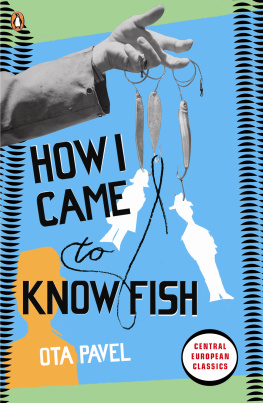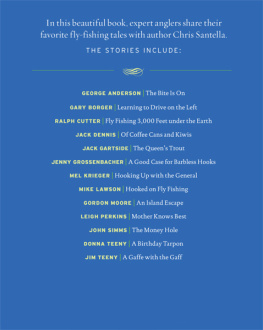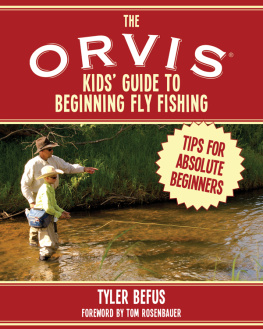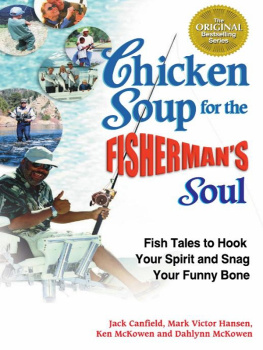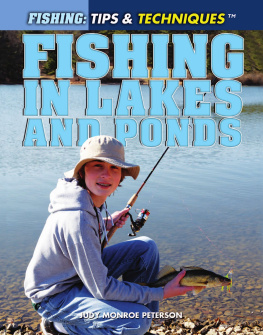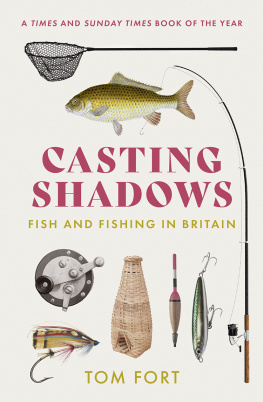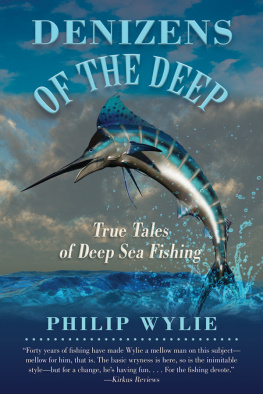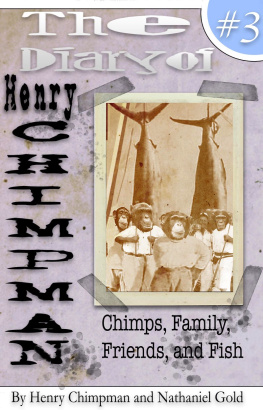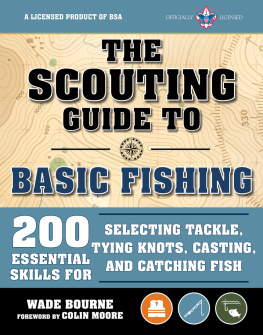OTA PAVEL
How I Came to Know Fish
Translated from the Czech by Jindriska Badal and Robert McDowell

PENGUIN BOOKS
PENGUIN CLASSICS
Published by the Penguin Group
Penguin Books Ltd, 80 Strand, London WC2R 0RL , England
Penguin Group (USA) Inc., 375 Hudson Street, New York, New York 10014, USA
Penguin Group (Canada), 90 Eglinton Avenue East, Suite 700, Toronto, Ontario, Canada M4P 2Y3
(a division of Pearson Penguin Canada Inc.)
Penguin Ireland, 25 St Stephens Green, Dublin 2, Ireland (a division of Penguin Books Ltd)
Penguin Group (Australia), 250 Camberwell Road, Camberwell, Victoria 3124, Australia
(a division of Pearson Australia Group Pty Ltd)
Penguin Books India Pvt Ltd, 11 Community Centre, Panchsheel Park, New Delhi 110 017, India
Penguin Group (NZ), 67 Apollo Drive, Rosedale, North Shore 0632, New Zealand
(a division of Pearson New Zealand Ltd)
Penguin Books (South Africa) (Pty) Ltd, 24 Sturdee Avenue, Rosebank, Johannesburg 2196, South Africa
Penguin Books Ltd, Registered Offices: 80 Strand, London WC2R 0RL , England
www.penguin.com
This translation first published in the United States of America by Story Line Press 1990
Published in Penguin Classics 2010
Copyright Story Line Press, 1990
All rights reserved
The moral right of the translators has been asserted
Except in the United States of America, this book is sold subject to the condition that it shall not, by way of trade or otherwise, be lent, re-sold, hired out, or otherwise circulated without the publishers prior consent in any form of binding or cover other than that in which it is published and without a similar condition including this condition being imposed on the subsequent purchaser
ISBN: 978-0-14-195703-6
PENGUIN MODERN CLASSICS
How I Came to Know Fish
Ota Pavel was born in Prague, Czechoslovakia in 1930, the son of a Jewish travelling salesman. Much of his family was arrested and imprisoned during the Second World War while he remained with his mother (who was not Jewish) in the Bohemian town of Buthrad. It is this terrible period in Central Europes history that this is the focus of his most memorable work. Pavel worked as a sports journalist, both on radio and in newspapers and magazines and was himself an enthusiast for all kinds of sport, including ice hockey and fishing. While covering the Winter Olympics in Innsbruck in 1964 he became severely ill and spent much of the rest of his life in various mental hospitals, during which time he wrote the marvellous How I Came to know Fish. He died of a heart attack in Prague in 1973.
Concert
For every fisherman, it is best to be initiated into the lore of fishing as a child by a father, an uncle, or a ferryman. In our case, it was the ferryman Karel Prosek from Luh-under-Branov, whom we grew to love as an uncle.
He not only taught me and my brothers Hugo and Jirka how to catch fish, but he taught my cunning Papa, too. Uncle Prosek knew so much about fish that he was probably born in the Berounka River like a water sprite and tumbled into Luh on the waters of a flood. He had a sonorous voice, a fine figure, and a beautiful moustache like a dragon. He could do anything in the world! He could plow and sow, milk cows, cook potato pancakes, find wild boletus mushrooms even out of season, ferry people in his boat during high waters, weave baskets, hunt deer, rescue travelers and half-frozen animals, silence the stupid, and he knew how to laugh. Many times, during high waters, he would ferry the mid-wife Flybertova and her indispensable suitcase. And he knew how to catch fish. Many ways! Hed impale them from his boat on moonlit nights with a fork called a grondle, he would sink down weirs in their path, or he would cast out a line in broad daylight and catch them on a rod like a gentleman.
This was during the time of the old Austrian monarchy, when Count Max Egon Furstenberg lived in Krivoklat castle eating hot goulash and drinking Rakovnik beer. Because Prosek was the best fisherman in the region, the Count allowed him to fish in any manner he chose and in any part of the river. But if he caught eels, with their meat like lotus blossoms, he must bring them to the castle! He carried the eels in a sack, which his wife Karolina sewed from canvas. He carried them, still living, along the Berounka to the castle. The gates would swing open majestically, as if for a conquering knight. Inside, he poured them into a pitched cask filled with water, and sometimes received a gold coin. The coin had the emperor on it and resembled the sun.
But after the Count climbed into his carriage and disappeared behind four foreign rivers, Prosek was forbidden variety in his manner of fishing. The rod, he was told, would be sufficient for all.
Prosek had a long, yellow bamboo rod, a whip without a spool. He would walk against the rushing water so that the fish could not see him and crack the whip as he styled his dragoons moustache. That is how his method got the name crack-casting.
One day we drove up in our car, my Papa Leo, my Mama Herma, my brothers Hugo and Jirka, and myself, our whole family. From under the alder trees all of us were watching Prosek on the far side of the river. He moved across the slippery stones like an otter. His floater flew to the exact spot he aimed at. And the fish? They seemed to jump out of the water silver chubs with red rudder fins, elegant whiskered barbels, big-bellied roaches from the tide pools, and daces from the swift currents. All of them slipped into his net, their freedom over, their master come, the King of Poachers.
My Papa, ever enthusiastic, cried out, Herma! What a concert! Just like Kubelik.
Suddenly, I imagined rows of theatre seats along the shore in which gentlemen in English checked plus fours and ladies in pink crinolines sat sighing and applauding as each fish was caught.
Messieurs, mesdames, this is true art. In his overflowing net Prosek caught up the last fish, then lit a cigarette and bowed.
The vision faded and Prosek was wading the shallow river towards us. Papa had immediately taken a liking to Prosek, because he too was a smart fellow. He could silence the stupid as well as Prosek could, and what he could not do Prosek would teach him. Ruffian Prosek suited my father well because his whole life he maintained that fine people are not worth shit. Papa and Prosek agreed that we would come to his ferry house for our summer vacations and his house alone.
My First Fish
Prosek returned from the Anamo pub in high spirits, singing old army songs. He knew a lot of them, having fought during the war in Serbia and carrying still a fragment of shrapnel in his hip. This souvenir often pained him, but he claimed that it stopped hurting once he had several hard shots inside him. In this condition he arrived at the boat, kissed the Alsatian, Holan, on the snout and sat down under the sweet-smelling acacia.
I was at the ferry at that time because my brothers did not take me with them again. They preferred the company of Dasa, the daughter of Beda Peroutka, who ignored me.
Prosek looked at me with his green eyes. Come here, Jackass!
I dragged myself slowly toward him. He did not love me much. His favorite was Jirka, a scoundrel after his own heart. I was the youngest, only a pet. Prosek stared at me and pulled out a pickle from his dirty pocket.
Here!
I took my finger out of my mouth and put the pickle in. Prosek watched me. Then he pulled out his flask.
Drink some! he commanded.
The bottle was empty, but I made a blissful face. The non-existing alcohol brought us together. When he got up to go to the barn, he motioned for me to follow him. Inside, he drew out a long hazel twig.

